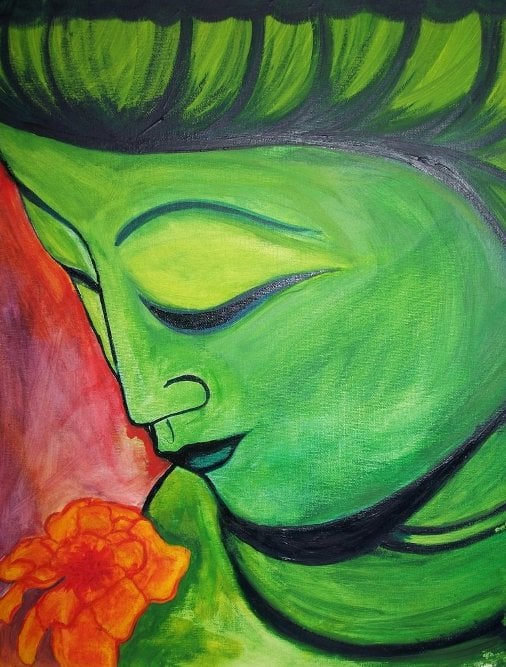
“If you realize that all things change, there is nothing you will try to hold on to.” ~ Lao Tzu
According to Buddhism, all our struggles stem from attachment.
I chuckled the first time I heard this. How is it possible that all my problems are because of attachment? As I scrutinized my life, I realized it was true. My arguments with others emanated from attachment to my opinions. My anger was because of attachment to particular results that didn’t manifest the way I expected. The sadness I experienced when I lost objects was also a result of attachment. And most importantly, agonizing over the loss of people in my life was because of attachment.
Now, we might think that attachment is limited to material things, but this isn’t true—it’s also extended to people. And by far, this is the most dangerous form of attachment. It’s hazardous because human beings are quite unpredictable, and they’re susceptible to change more than anything else in life. The reason is because we are conditioned by nature, and conditions change pretty often.
The most important thing to understand is that attachment doesn’t happen overnight. It starts to take place after spending a good amount of time with someone (it could be a family member, a coworker, a friend, or a lover). We don’t really get attached to the person, but to the experience we have with them. We get attached to the range of emotions that this particular person stirs up in us—good or bad.
Consequently, our mind identifies an emotion as either pleasurable or pleasant, and we crave it more often. Then, when attachment develops, we fear losing the person. In other words, we fear losing the emotions that they make us feel. We especially get attached to people who make us happy, because we are prone to believe that we need an outside factor to complete our sense of happiness.
The palpable solution is to break our attachment. The concept of detachment terrifies us at times, but the truth is that it’s not as frightening as it sounds. When we detach from something (or someone), we don’t entirely let go. It’s just that we start relating to things and people differently—in a much healthier way.
Detachment is essential because, let’s be honest, no one is happy being dependent on anyone or anything. Even if we claim that we’re happy with our attachment, there will come a time when circumstances will prove us wrong. Dependence on others feels good only when the causes and conditions are in our favor. But when conditions change (as when people leave or stop being available) then we realize that attachment to others causes us misery.
When we detach from someone, we stop expecting so much from them. Also, our happiness becomes authentic. Instead of looking outside ourselves to complete our happiness, we understand that we are already complete and can achieve full happiness on our own. Any happiness coming from the outside is merely an addition to our already existent happiness—but it’s not dependent on the absence or presence of the object or person.
Let’s not forget that that the person to whom we are attached becomes happier as well, because they’re no longer pressured to fit into the image we have of them, or what we expect of them. They start giving as much as they can, not what we expect them to give. In this way, we can experience true love for people, which is quite different than the attachment kind of love.
In order to let go of attachment to others, Buddhists advise us to start looking within, so we can love ourselves. The fact is, we always seek in others what is missing within ourselves. It doesn’t mean, for instance, that if we start loving ourselves, we stop wanting others to love us.
On the contrary, we still want to be loved, but we also appreciate the nature of love that’s being given to us. We accept whatever we are receiving, instead of trying to manipulate it. Also, we take into account that this love we are receiving now might not last for as long as we might hope. But instead of fighting to keep it, we understand its ephemeral nature and simply enjoy its current presence.
Not understanding impermanence is another major problem that’s standing in the way of our attachment. According to Buddhism, if we truly contemplate the impermanence of things, we’d be aware enough to not be attached to anything in life—object or person.
If I know that this table is going to break tomorrow, I wouldn’t still cling to it. I’d enjoy whatever time I have left with it, instead of wasting energy trying to keep it. Understanding the impermanence of all phenomena in life helps us to stop fighting transience.
Another way to detach from others is to understand that attachment comes from the mind. As Eckhart Tolle says, “Know that you are not your mind.” We are so much bigger and deeper.
~
Author: Elyane Youssef
Image: Deviant Art
Editor: Yoli Ramazzina








Read 27 comments and reply